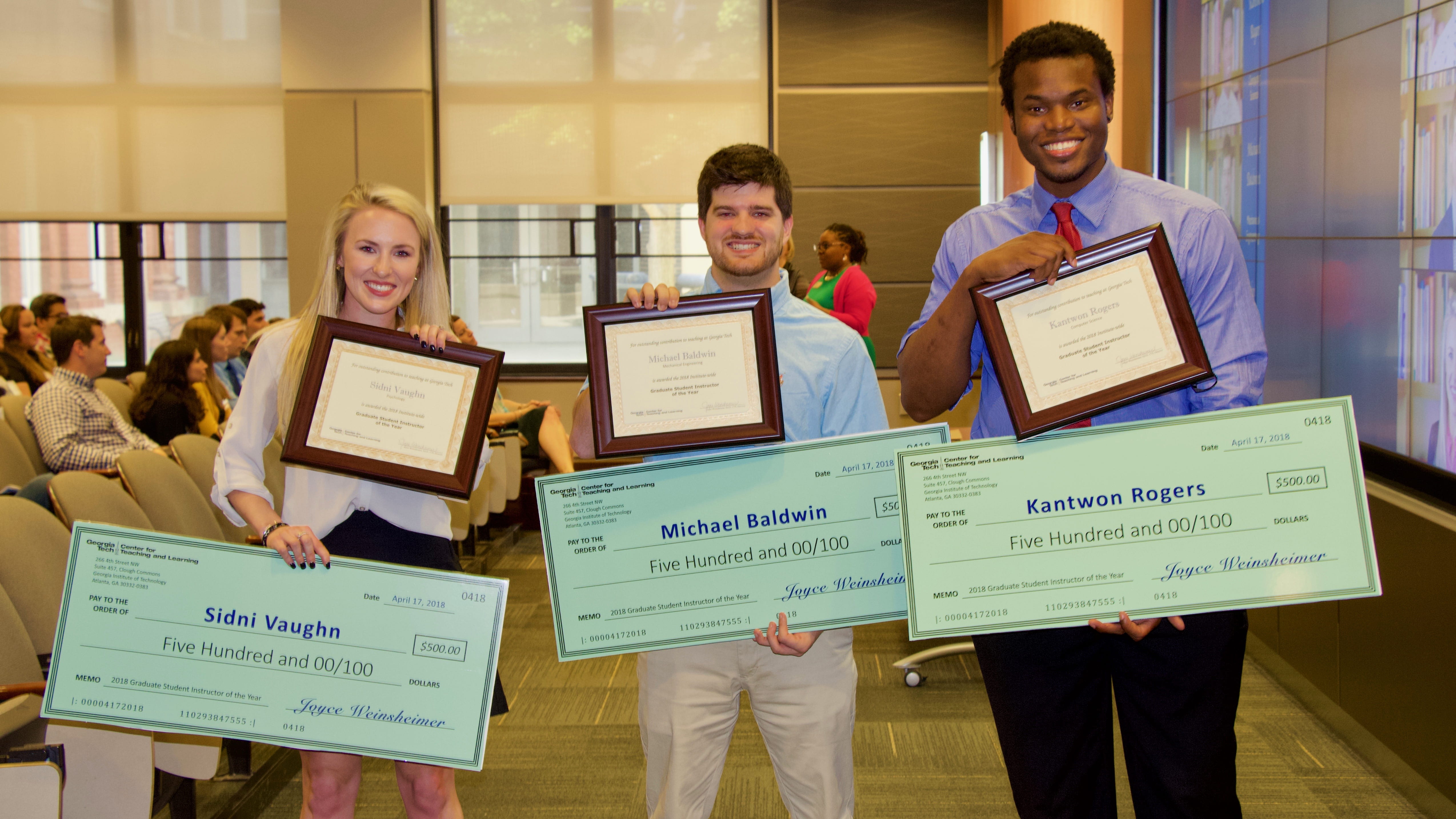Universal Challenges Lead to International Faculty Connections

How does a leading research university fully prepare students to tackle society’s complex problems of tomorrow? How can instructors motivate students through classroom teaching and approaches to grading? What responsibility does the institution have to prepare doctoral students for teaching roles?
These are questions that the Center for Teaching and Learning helps faculty navigate at Georgia Tech. These are also the questions encountered by the Centre for Educational Quality Enhancement and Methodology at Corvinus University of Budapest, the premier university in Hungary for business and social science disciplines.
During my recent visit to Corvinus University as faculty-in-residence, I had the opportunity to present four workshops designed to engage faculty in conversations around these questions. Across these sessions, we found common challenges faced by students and faculty alike, as well as opportunities to leverage similar solutions.
The first workshop, “Reaching Today’s Students,” explored various motivation theories to address the challenges faced by today’s students. Corvinus students are much like American students: stress, social isolation, and financial strain prevent students from fully engaging in their education. Intrinsic and extrinsic motivation theories can help us anticipate student behavior and participation. We explored ways to suspend assumptions and get curious about student needs, helping us understand the root causes of student disengagement. By employing interactive teaching techniques, such as polls and think-pair-share activities, faculty can foster environments that connect learning to students’ personal goals and ultimately enhance student motivation.

In the second workshop, “Rethinking Assessment with Specifications Grading,” we delved into alternative grading methods designed to inspire deeper learning. This approach challenges traditional grading systems, advocating instead for an assessment approach that mirrors real-world evaluation. By clarifying assignment expectations, using simple rubrics, and providing opportunities for revision, faculty can design an assessment plan that helps students focus on learning rather than grades. Faculty were invited to share their experiences with traditional grading, ultimately recognizing how specifications grading can promote student trust and engagement while easing common faculty grading frustrations.
The third workshop presented Georgia Tech’s ongoing efforts to prepare doctoral students for teaching roles. After examining the evolving landscape of faculty training in the United States, we discussed ways that equipping doctoral students with essential teaching skills benefits the doctoral students’ personal and career development, the undergraduate students they currently teach and mentor, and their future students. Georgia Tech’s membership in the Center for the Integration of Research, Teaching and Learning (CIRTL), an international network of institutions committed to preparing graduate students for teaching positions, provided additional examples of effective future faculty programming. Graduate directors participated in brainstorming sessions to identify how similar initiatives could be adapted at Corvinus.
 At the fourth workshop, we explored our institutions’ common goals and initiatives to transform teaching and learning. Georgia Tech’s next Quality Enhancement Plan served as a backdrop for conversations about opportunities for educational enhancement at Corvinus. We discussed how to generate stakeholder engagement, identify institutional strengths, and leverage energy for institutional change. Examples of experiential learning and high-impact practices provided evidence-based outlets to transform student learning both in class and beyond the classroom. Participants shared ways they implement these practices and the impact these approaches have on students’ preparation to tackle real-world challenges. Discussions among institutional leaders included the potential for curricular and pedagogical changes and stakeholder involvement to further enrich the student learning experience.
At the fourth workshop, we explored our institutions’ common goals and initiatives to transform teaching and learning. Georgia Tech’s next Quality Enhancement Plan served as a backdrop for conversations about opportunities for educational enhancement at Corvinus. We discussed how to generate stakeholder engagement, identify institutional strengths, and leverage energy for institutional change. Examples of experiential learning and high-impact practices provided evidence-based outlets to transform student learning both in class and beyond the classroom. Participants shared ways they implement these practices and the impact these approaches have on students’ preparation to tackle real-world challenges. Discussions among institutional leaders included the potential for curricular and pedagogical changes and stakeholder involvement to further enrich the student learning experience.
Overall, these workshops provided a platform for dynamic discussions about pedagogical innovations and their practical applications at Corvinus University. Through discussions about student motivation, assessment, faculty preparation, and institutional initiatives, the workshop series aimed to facilitate dialogue within the teaching community. According to Dr. Kata Dosa, Head of the Centre for Educational Quality Enhancement and Methodology, and the host for my visit, these “opportunities give us the chance to step out of the daily grind and look at ourselves from different perspectives and experiment in safety.” Indeed, these same benefits are generated among the Georgia Tech teaching community when faculty gather. Just as faculty and students face similar challenges across institutions, collaborative faculty engagements like these generate insights that benefit both faculty and their students alike.
A first draft of this blog post was created with the help of ChatGPT based on my workshop outlines.




